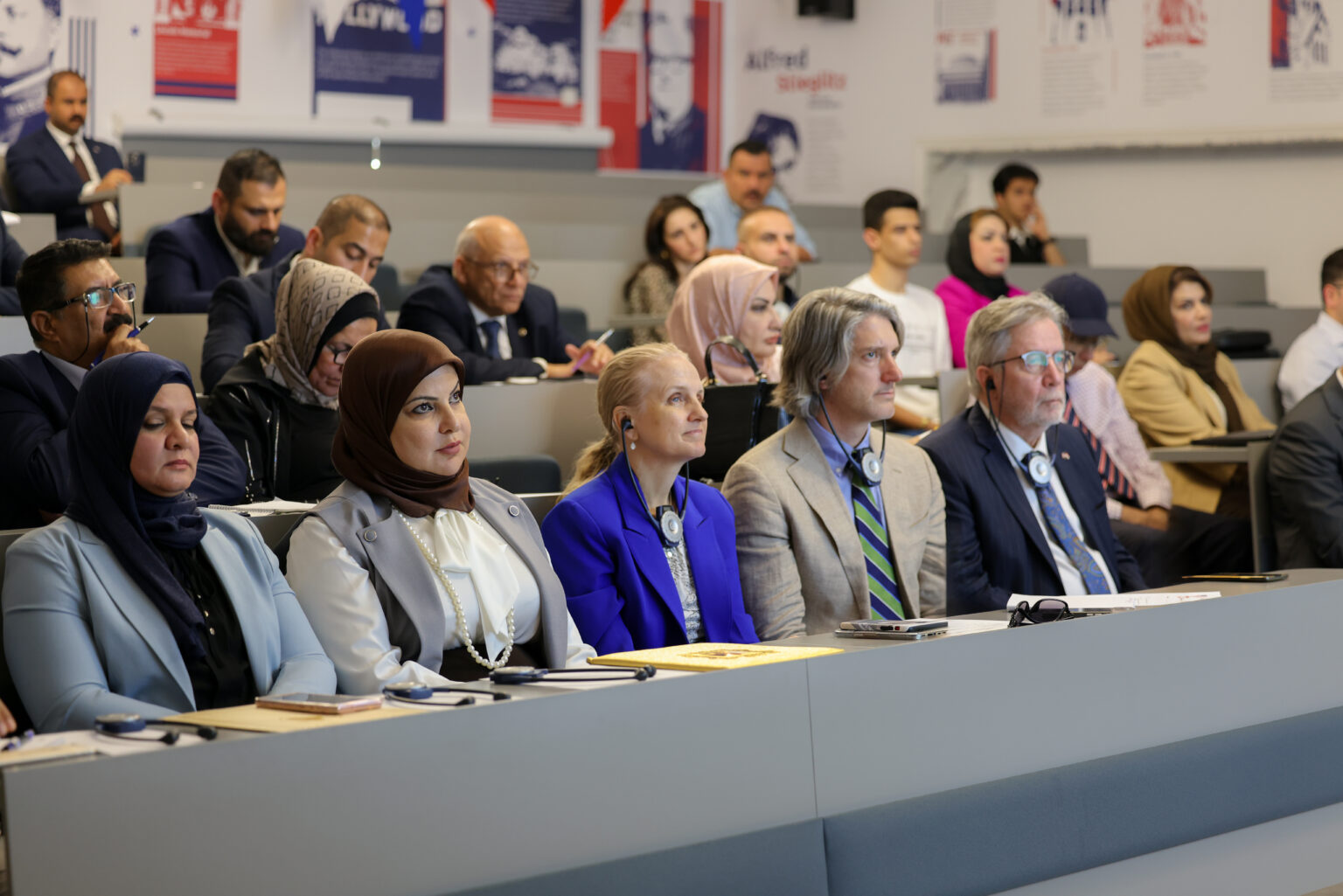The American Space at the American University of Iraq-Baghdad (AUIB) hosted a workshop on “Decolonizing English in Higher Education: From Theory to Practice,” delivered by Professor of Applied Linguistics at the University of Qadisiya, Dr. Sami Alhasnawi, who presented a research project he and his colleagues conducted in collaboration with the British Council and the University of Southampton, as part of the British Council’s “Widening Participation” program. The research project studied aspects of the experiences of 1,820 students in Iraq, Mexico, Thailand, Colombia, Vietnam, and the UK, who studied English as a foreign language, diving deep into “how English can both empower and marginalize learners,” as the status of this language that is today “the global lingua franca of academia… is deeply rooted in colonial legacy,” as per Dr. Alhasnawi.
“The closest thing to our identity is language,” which has the power to “reconstruct people’s identity,” affirmed Dr. Alhasnawi, asking the participants in the workshop, “why are we familiar with this foreign language and not another?” The answer, put simply and in a single word, was “hegemony,” which “marginalizes indigenous languages and ways of knowing.” And the hegemon, in this case, is not only a given language, but a certain brand of it, and a specific accent, or what the researcher termed the “hegemony of Standard Englishes” over “Global Englishes,” even within Britain itself, as a prominent example.
Of the key findings of the research project was that there exists a “lingering stigma, discouraging the use of mother languages (on part of many) in academic spaces,” in a manifestation of “hegemony,” cultural and otherwise, at its clearest, explained the linguist, adding that some “feel threatened” if not conforming not only to the dominant language, but also to the dominant accent, even when communicating effectively and efficiently. Therefore, “in the higher education context, decolonizing English is about dismantling linguistic hierarchies” and “preserving learners’ identities,” where languages should “coexist,” ensuring “equity and diversity” as “essential conditions for equitable and sustainable education,” concluded Dr. Alhasnawi.
